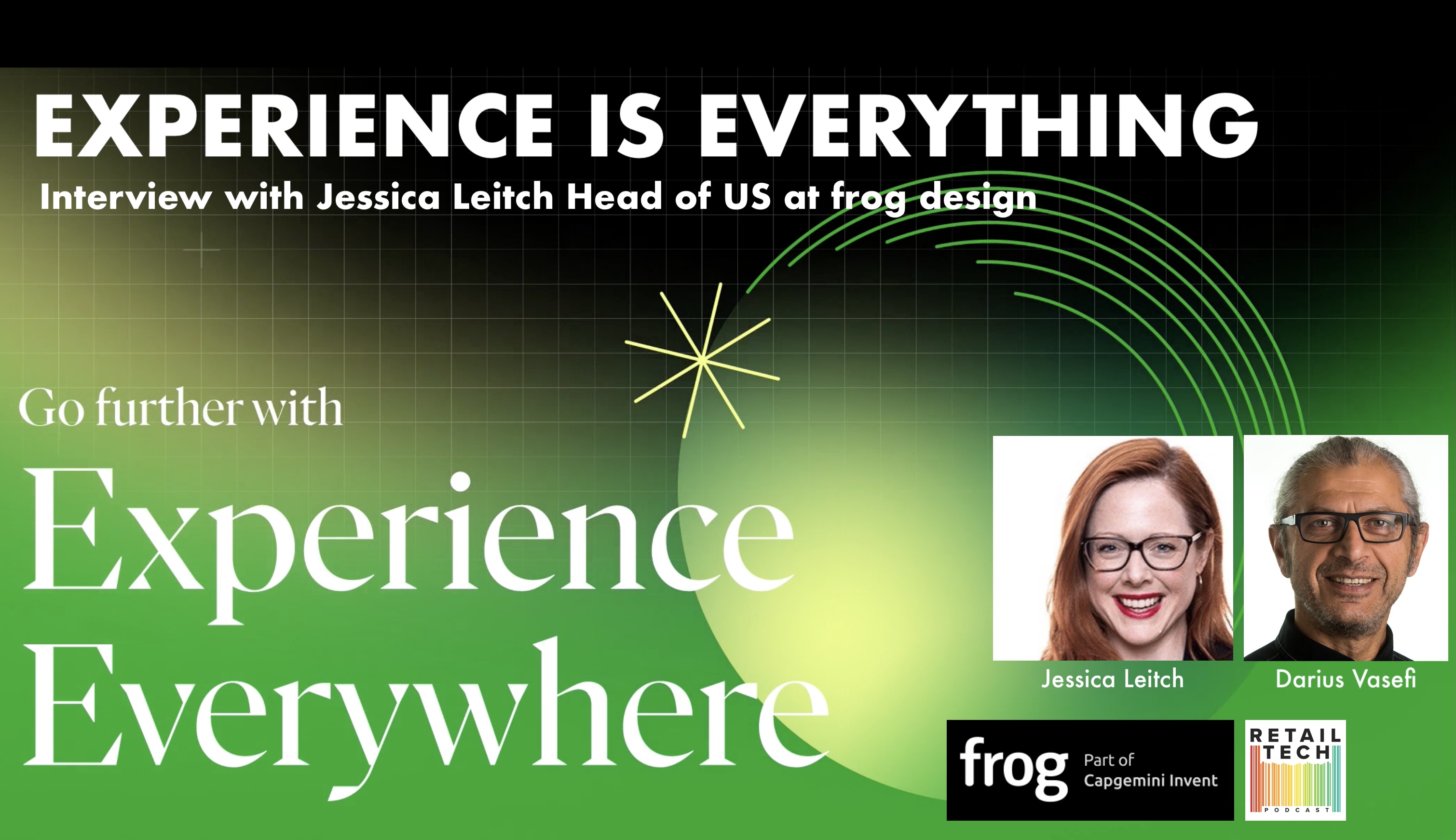

Interview with Jessica Leitch of Frog on trends redefining retail as brands adapt to evolving consumer expectations

Frog is a global creative and design consultancy founded in 1969 by industrial designer Hartmut Esslinger in Germany.
Initially named "esslinger design," the company gained prominence through collaborations with brands like WEGA and Sony, notably designing products such as the Sony Trinitron television and the Walkman. In 1982, the firm rebranded as "frog design," with "frog" originally standing for the Federal Republic of Germany, reflecting its origins.
Over the decades, frog expanded its services beyond industrial design to include strategy, branding, and software design, working with clients like Apple—developing the Snow White design language—and NeXT Computer. The company continued to evolve, integrating capabilities in intelligent systems, virtual reality, artificial intelligence, and adaptive environments.
In 2021, frog was acquired by Capgemini and is now part of Capgemini Invent. As a reinvention and experience partner for the eco-digital era, frog collaborates with clients to innovate purposefully, utilizing strategy, creativity, technology, data, and AI to drive advancements for people and the planet.
Today, frog operates globally with studios across North and Central America, Europe, and Asia, including locations in San Francisco, New York, London, Milan, Munich, Bangalore, and Singapore. The company continues to challenge the status quo by fusing art and science to create lasting impacts at scale, aiming to regenerate systems and communities in the eco-digital era.
Frog's new report, Futurescape, highlights the trends that will redefine industries, including retail, as brands adapt to evolving consumer expectations and technological advances for the next quarter-century.
The report delves into how businesses can create immersive, personalized, and future-ready retail experiences while sparking crucial questions that challenge our understanding of technology, society, and what it means to be human in the digital age.
In this conversation with Jess Leitch, Head of frog in North America, part of Capgemini Invent, we discuss the key trends and why they are pivotal for shaping the future, including:
The Power of the Parasocial: The rise of parasocial interactions, driven by advanced AI agents, creates opportunities for brands to foster deeper connections with consumers in decentralized, secure environments.
Engaging in Our Natural Language: Digital interactions are shifting from app-centric to natural language-centric and how this evolution addresses the disconnect in our digital lives and integrates privacy, empathy, and seamless omnichannel experiences into everyday interactions.
Unleashing Zero UI: The era of zero user interface is here. Jess can explore how biometrics, AI, and multimodal systems are transforming user experiences that move beyond screens to intuitive, touchless interactions that redefine the future of accessibility.
The Digital Planetary Body: Envisioning AI as more than a digital phenomenon and recognizes its reliance on Earth’s resources and its environmental impact with insights on how this perspective encourages innovative approaches to reducing AI’s environmental footprint as technology advances.